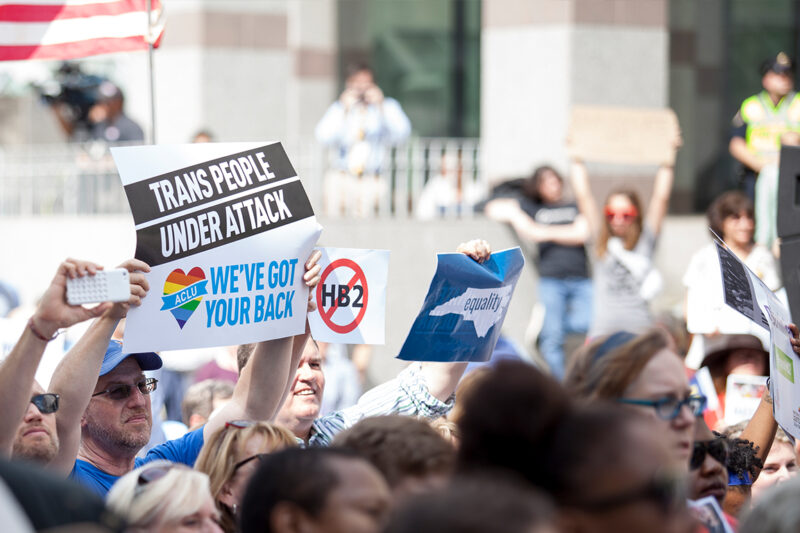
Will March Madness return to Basketball Country in 2018?
After the North Carolina legislature, with a clutch assist from Democratic Gov. Roy Cooper, rushed through yet another anti-LGBTQ law, the NCAA announced this week that it will “reluctantly” reconsider North Carolina when it determines which cities and schools can host events for the next five years. The NCAA concluded that the state’s new law, HB142, has “minimally achieved a situation where we believe NCAA championships may be conducted in a nondiscriminatory environment.”
Is that true?
The short and simple answer is, “no,” even though you might have read elsewhere that North Carolina “repealed” last year’s discriminatory law, HB 2, with HB 142.
But it’s all a lie. Here’s what HB 142 really does.
Until 2020, localities throughout the state of North Carolina cannot pass nondiscrimination ordinances protecting their LGBTQ residents. In other words, HB142 makes it illegal to protect people from discrimination. It also bars schools, including public colleges and universities, and government buildings from passing any policies protecting transgender people from discrimination in restrooms indefinitely. More insidiously, HB 142 perpetuates the unfounded, vile myth that transgender people are a threat to public safety and privacy — a fiction that has notably been refuted time and again in the hundreds of school, cities, and states where transgender people are protected from discrimination without any uptick in public safety incidents.
Last year, after the legislature and then-Gov. McCrory rushed HB2 into law, the NCAA made the right decision by pulling its championship events out of North Carolina. The NCAA based this decision on the fact that HB2 destroyed the state’s ability to provide a “safe and respectable environment” for all participants, including players and fans.
We all know what happened thereafter: LGBTQ North Carolinians had to live under a law that threatened their safety and peace of mind. A swift, nationwide backlash is still plaguing North Carolina’s economy and its residents.
Though the NCAA said in its announcement this week that any sites applying to host championships would be “required to submit additional documentation demonstrating how student-athletes and fans will be protected from discrimination,” it is not clear how that would work with HB 142 now in place.
So we’re going to find out.
Today we’re filing public records requests with cities and schools throughout the state of North Carolina that are bidding to host NCAA championships. We have a right to know how they plan on protecting LGBTQ athletes and fans during those events, particularly transgender athletes and fans who are set-up for harassment and discrimination under both HB2 and its clone HB142.
- What are they saying in response to this nondiscrimination questionnaire?
- How have they described the potential impact of HB 142?
- What are they going to say about the fact that anti-LGBT legislators have already introduced HB 562, a bill that would enhance criminal penalties and allow anyone to object to transgender people simply using the restroom consistent with their gender identity?
The NCAA still has time to do the right thing. And we’re going to hold their feet to the fire. Join us.

